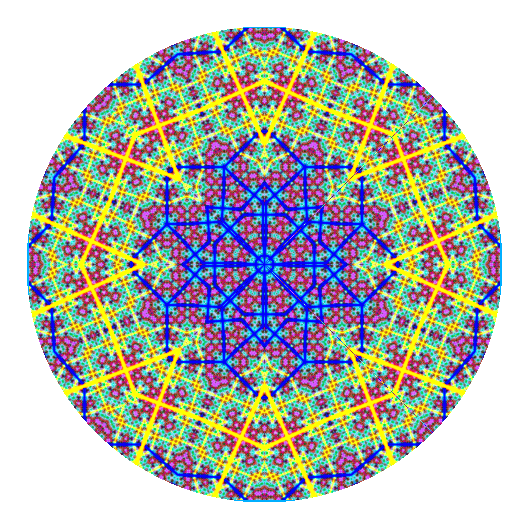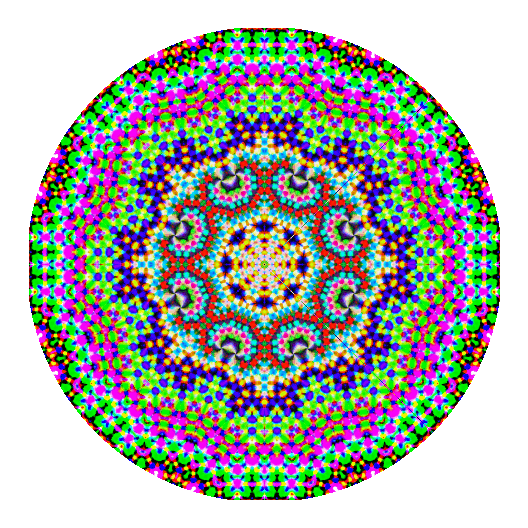 The New York Times has had a series of articles recently that touch on one of my sore points, the idea that organic food is somehow better for you and the planet than conventional agriculture. This is problematic, because A) it simply isn't supported by the evidence and B) it replaces critical thinking about food policy.
The New York Times has had a series of articles recently that touch on one of my sore points, the idea that organic food is somehow better for you and the planet than conventional agriculture. This is problematic, because A) it simply isn't supported by the evidence and B) it replaces critical thinking about food policy.
First, from September 3rd, 2012.
"[Stanford University Scientists] concluded that fruits and vegetables labeled organic were, on average, no more nutritious than their conventional counterparts, which tend to be far less expensive. Nor were they any less likely to be contaminated by dangerous bacteria like E. coli.
The researchers also found no obvious health advantages to organic meats.
Conventional fruits and vegetables did have more pesticide residue, but the levels were almost always under the allowed safety limits, the scientists said. The Environmental Protection Agency sets the limits at levels that it says do not harm humans.
“When we began this project, we thought that there would likely be some findings that would support the superiority of organics over conventional food,” said Dr. Dena Bravata, a senior affiliate with Stanford’s Center for Health Policy and the senior author of the paper, which appears in Tuesday’s issue of the Annals of Internal Medicine. “I think we were definitely surprised."
This study prompted some self-doubt from the usual suspects I know on Facebook, but they rapidly recovered and decided that organic food wasn't about nutrition, or chemical exposure, but about sustainability and the environment.
Of course, organic agriculture is still agriculture, and used land, water, and other resources. From December 30th, 2011.
"Growers here on the Baja Peninsula, the epicenter of Mexico’s thriving new organic export sector, describe their toil amid the cactuses as “planting the beach.”...
The explosive growth in the commercial cultivation of organic tomatoes here, for example, is putting stress on the water table. In some areas, wells have run dry this year, meaning that small subsistence farmers cannot grow crops. And the organic tomatoes end up in an energy-intensive global distribution chain that takes them as far as New York and Dubai, United Arab Emirates, producing significant emissions that contribute to global warming."
And then today, Nicolas Kristof got to the heart of the matter.
"Let me introduce Bob Bansen, a high school buddy of mine who is a third-generation dairyman raising Jersey cows on lovely green pastures here in Oregon beside the Yamhill River. Bob, 53, a lanky, self-deprecating man with an easy laugh, is an example of a farmer who has figured out how to make a good living running a farm that is efficient but also has soul.
As long as I’ve known him, Bob has had names for every one of his “girls,” as he calls his cows. Walk through the pasture with him, and he’ll introduce you to them."
This is what organic is really about, not any kind of health or environmental virtue, but the belief that you can have a personal relationship with your food, and thence the land by buying organic. Milk doesn't come from a store, it comes from Farmer Bob and his happy cows. The organic label on your granola bars and cage-free eggs are link to the Jeffersonian yoeman farmer of yore.
This is utter bunk. What percentage of organic consumer actually go back to the farm? How much of what is on organic labels is faux-folksy marketing verbiage from big business? Perhaps my favorite reductio ad absurdum of the local-organic food movement was an article I saw in a magazine (that I sadly can no longer find) about a service in San Francisco that dispatches hipster farmers on fixies to take care of your urban garden if you're too busy to weed, water, and harvest it yourself for the low price of ~$30/hour.
Why does this annoy me? Food is serious business, everybody on earth depends on agriculture to survive, and the fights over organic-vs-conventional are an elitist distraction that prevents progress on real issues relating to global food justice, sustainability in the face of climate change. There's a reasonable argument to be made that the 2009 Russian drought triggered the Arab Spring, as authoritarian regimes could no longer buy off their restive populations with subsidized bread. This year's American corn crop is pretty much also a write off, with unpredictable but not good effects.
I'm not a food policy expert by any means, (for that see www.shapingsciencepolicy.com), but tangling up naturalistic values with the basic infrastructure of survival is not a winning strategy. If you really care about minute levels of pesticide exposure, get the FDA to draft new rules based on solid studies. If you think that the food pyramid is bunk, and most food is toxic junk, develop a deep base of credible experts to run a more independent USDA. Politics is slow and frustrating, full of compromises and delays, but if your not involved, it'll be left to the hucksters and the sharks and the industry representatives.
I get that people feel lost and disconnected from traditional values and from the land, but guess what. You're not a farmer, and unless you spend a significant amount of time working in the dirt, you won't be. You're just another anonymous 21st century consumption unit like the rest of us, and putting different food in your maw won't give you the values you seek. Changing the world by buying the right stuff just makes new categories for the ad men to use to divvy us up.
 (( This figure comes from a document on arXiv, which is not peer reviewed. Documents on arXiv should be viewed as "entertainment only, any any resemblance to real science or mathematics, living or dead, is purely coincidental" until the documents have been vetted by the community. That said, this flowchart of formal systems amuses me. I also find the notion that the existence of a mathematical description of a physical system somehow, philosophically, implies the existence of such a system, entertaining, in an almost religious sense. ))
(( This figure comes from a document on arXiv, which is not peer reviewed. Documents on arXiv should be viewed as "entertainment only, any any resemblance to real science or mathematics, living or dead, is purely coincidental" until the documents have been vetted by the community. That said, this flowchart of formal systems amuses me. I also find the notion that the existence of a mathematical description of a physical system somehow, philosophically, implies the existence of such a system, entertaining, in an almost religious sense. )) The New York Times has had a series of articles recently that touch on one of my sore points, the idea that organic food is somehow better for you and the planet than conventional agriculture. This is problematic, because A) it simply isn't supported by the evidence and B) it replaces critical thinking about food policy.
The New York Times has had a series of articles recently that touch on one of my sore points, the idea that organic food is somehow better for you and the planet than conventional agriculture. This is problematic, because A) it simply isn't supported by the evidence and B) it replaces critical thinking about food policy.
 Strategy is not an American strength. Strategic plans are written to serve the interests of political parties and the election cycle, factions within the Pentagon and military industrial complex seeking billions of dollars for next-gen weapons system, or at best a small group of dissident colonels seeking promotion or post-retirement sinecures. Everybody has an agenda, and almost nobody is conducting honest analysis in search of the truth. The authors of Unrestricted Warfare are coming from outside the Beltway; way outside the Beltway, as they're officers in the People Liberation Army. With no DC career to worry about, there's at least the potential of some candid truth about the future of warfare, and besides as a Chinese strategic plan, reading this has the same kind of vicarious thrill as reading Guderian's Achtung-Panzer! in 1938.
Strategy is not an American strength. Strategic plans are written to serve the interests of political parties and the election cycle, factions within the Pentagon and military industrial complex seeking billions of dollars for next-gen weapons system, or at best a small group of dissident colonels seeking promotion or post-retirement sinecures. Everybody has an agenda, and almost nobody is conducting honest analysis in search of the truth. The authors of Unrestricted Warfare are coming from outside the Beltway; way outside the Beltway, as they're officers in the People Liberation Army. With no DC career to worry about, there's at least the potential of some candid truth about the future of warfare, and besides as a Chinese strategic plan, reading this has the same kind of vicarious thrill as reading Guderian's Achtung-Panzer! in 1938.
